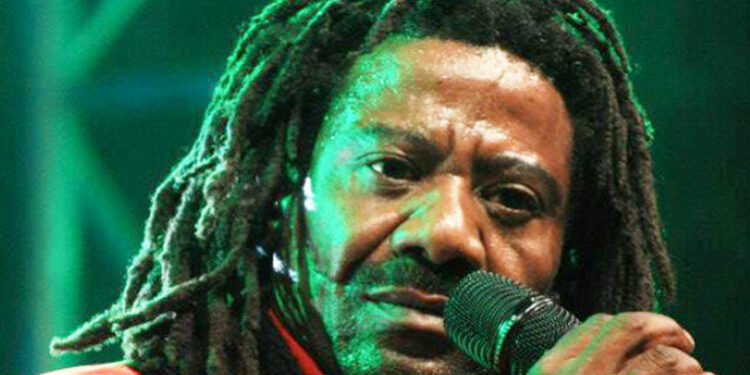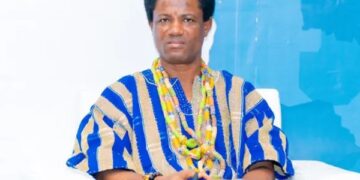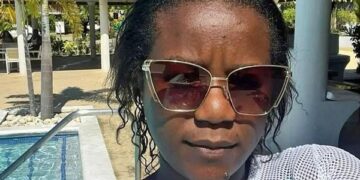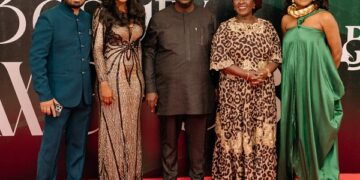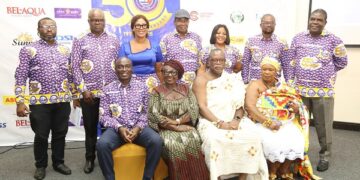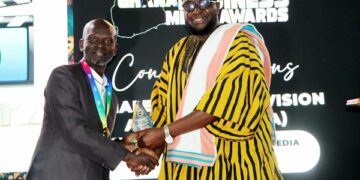WINDHOEK, Oct 4 (The African Portal) – Award-winning musician Ras ‘Adee’ Muundjua is a devoted fan of reggae music – so much that he is considering forming a united front of reggae artists to ensure the survival of the genre.
The founding member of reggae group Shem Yetu did not mince his words while speaking about the disrespect fellow reggae artists are subjected to with invitations to perform at national events or even when soliciting funds to stage a show.
Simply known as Ras Adee, the dreadlocked star considers himself a pioneer of Namibian reggae music.
“It is weird that while live-performing musicians are enjoying being superstars in other parts of the world, people consider us a waste of time just because we are true musicians with an inborn talent to entertain people,” he says.
“During the country’s liberation struggle, live bands were the main source of entertainment for the oppressed masses. We even attracted crowds at campaign rallies of political parties during the country’s first democratic elections, but we are deemed ineffective now.”
‘Struggle heroes’
Ras Adee says reggae stars like Peter Tosh, Bob Marley and Lucky Dube were struggle heroes because they sang against oppression and discrimination.
“ Even people living in the ghettos with no running water and electricity. I am talking about people who spent days without food,” he says.
The artist says he can’t survive without the support of his people.
Born at farm /Garib, near Dordabis in the Khomas region, Ras Adee comes from a singing family. His mother used to sing in church choirs growing up, he says.
In 1971, he moved to Windhoek, where he started Sub A (Grade 1) at the then Damara 1 Lower (Auas) Primary School at Katutura before continuing with Standard 2 (Grade 4) at Damara Higher Primary School, which has since been renamed Goreangab Junior Primary School.
“Shortly afterwards I was sent to St Don Bosco Boys’ Primary School at Goas, but school became too boring for me, because the arts were in my genes. I wanted to become a big man doing things on my own, and playing music was my escape route,” Ras Adee says.
“I came to Windhoek and started following musicians, like one particular uncle known as Ben who had a band – Ben and Friends. They were playing mbaqanga music covers and uncle Ben taught me how to play the bass guitar. I joined his band as well.”
It was not long before Ras Adee met up with multi-instrumentalist and winner of the SWABC’s Music Makers Competition in 1988, Samuel Vleermuis, well known for his hit ‘Hier Jy Was’, and his two brothers.
Vleermuis, who was particularly famous for his exceptional command of the acoustic guitar, played what sounded like a beautiful fusion of Boeremusiek-vastrap and Namastap.
The dreadlocked star also got a few music lessons from the late folk singer Ben Molatsi, a family friend who was based at Okahandja at the time, before he finally moved to Tsumeb, where he also retired from his teaching career.
First world
In 1989, Ras Adee started his own band, First World, inspired by the dynamic Jamaican reggae band Third World, together with his two brothers Ras Lando and Zulu.
“I decided on First World because we were about to gain independence from South Africa soon and we were the first reggae music band at the time. We released our first album, ‘Iyaman’ which loosely translates as ‘Rastaman’ or ‘I Man’ in Rastafari terms,” he says.
“Coming from the farm to find my feet and releasing an album was quite a milestone. Just to hear your songs being played on other people’s record players and getting people dance to your songs was an absolutely incredible feeling.”
He says his music took a new shape in 1990 after he met Ras Sheehama, who also played reggae. The two connected immediately, he says.
They would also attend each other’s rehearsals and share ideas and advice.
Soon afterwards his second album, ‘Legalize It’, was released.
“The title is self-explanatory,” he says. “When I was a small boy, people at my farm and everywhere else around the country were making medicine from ganja. They also used to smear oil extracted from the dagga plant on children to protect them from ailments.
“However, the white man came to our continent and passed laws which are applicable until today that smoking a healthy plant like marijuana is illegal. We were forced to drink alcohol and smoke cigarettes instead and they are taking the banned marijuana to make medicine.”
Ras Adee decries the fact that radio stations are reluctant to play reggae music, adding that the future of live music performers is bleak.
Credit: The Namibian
